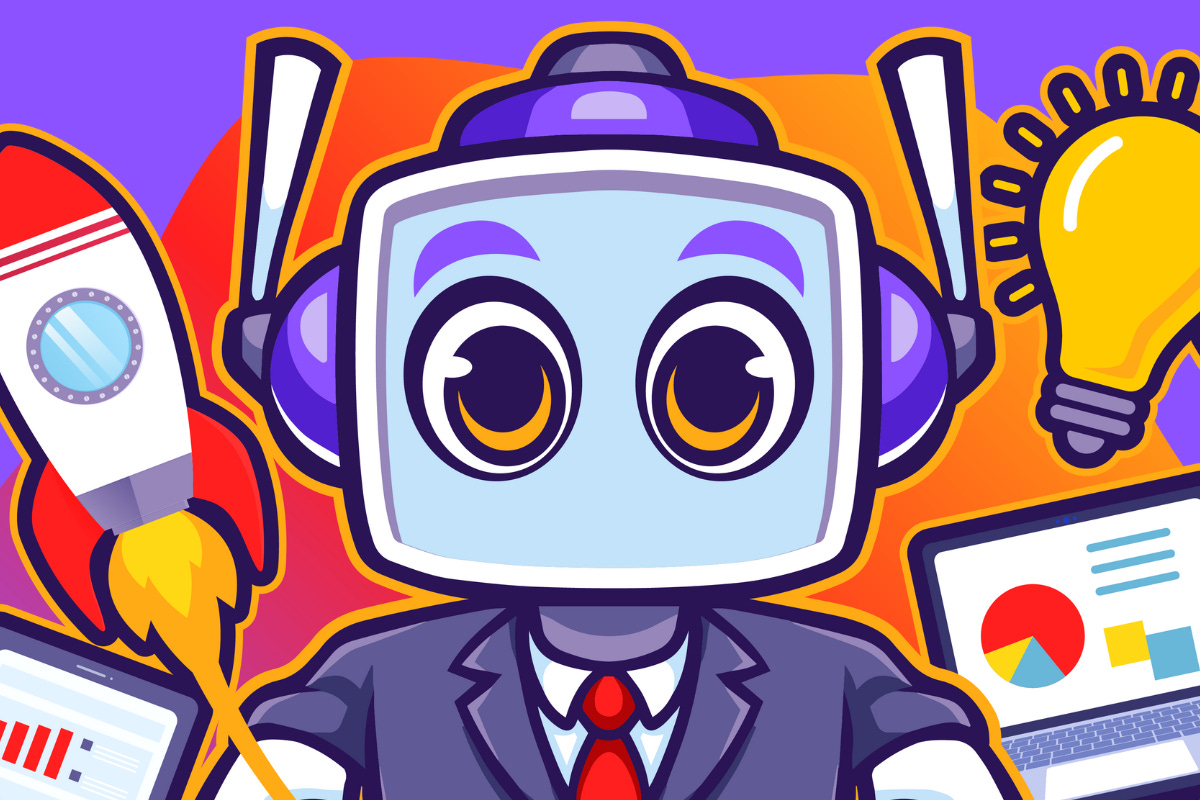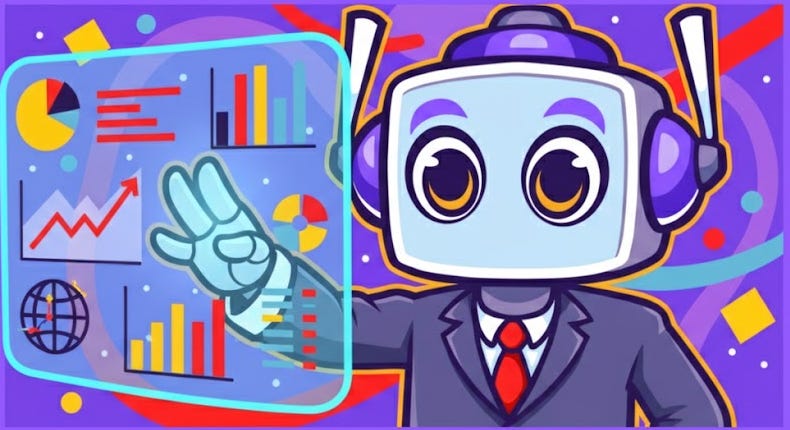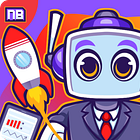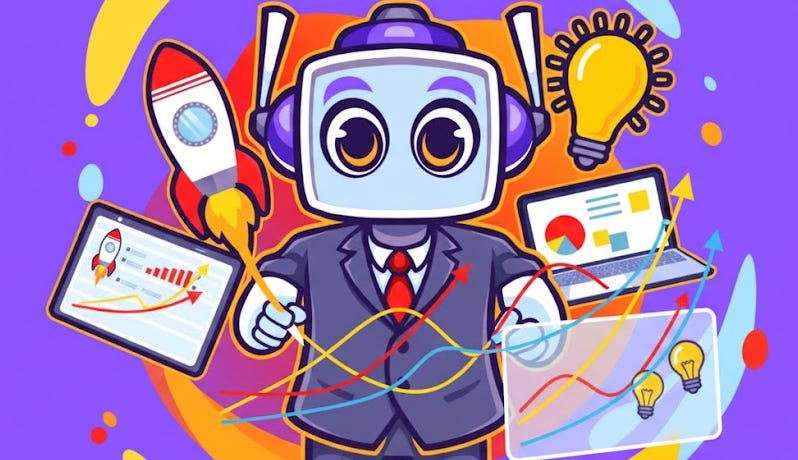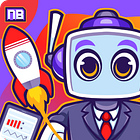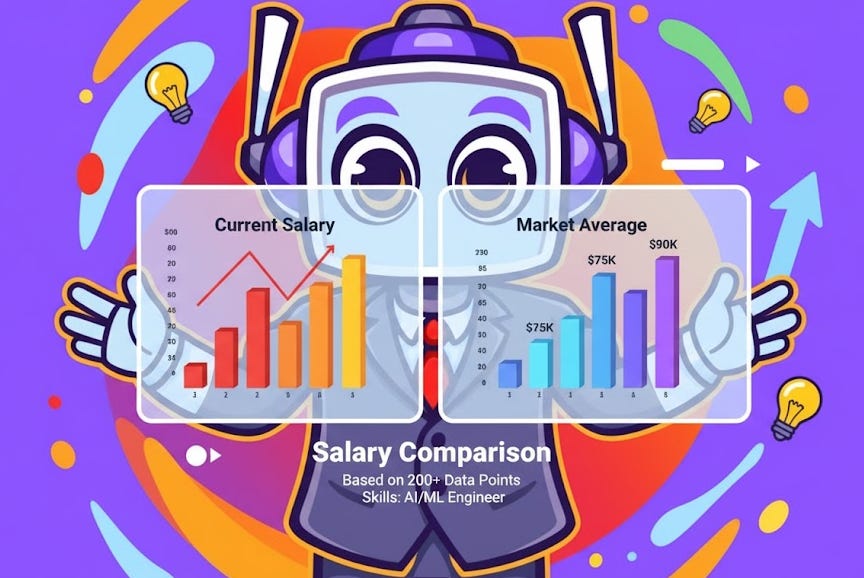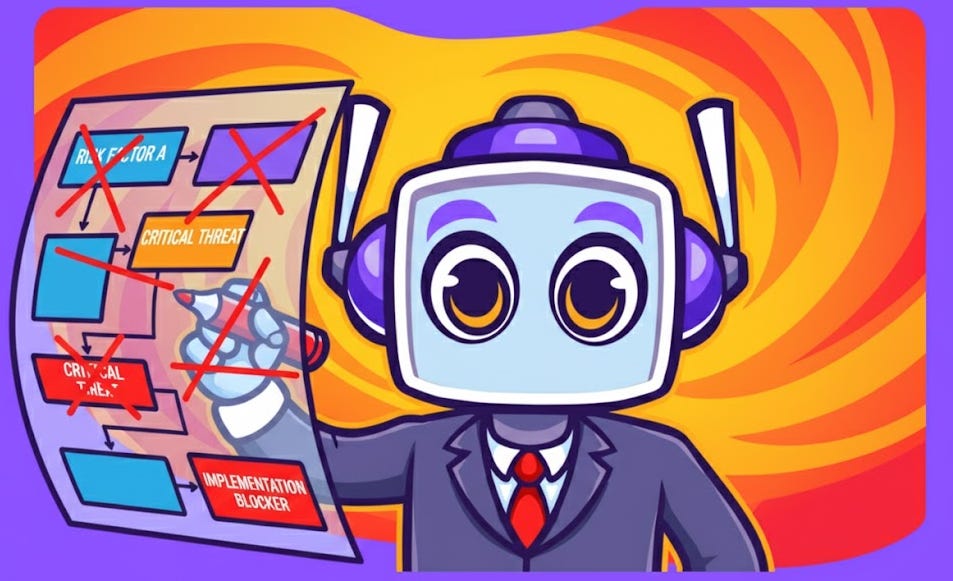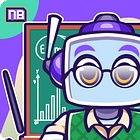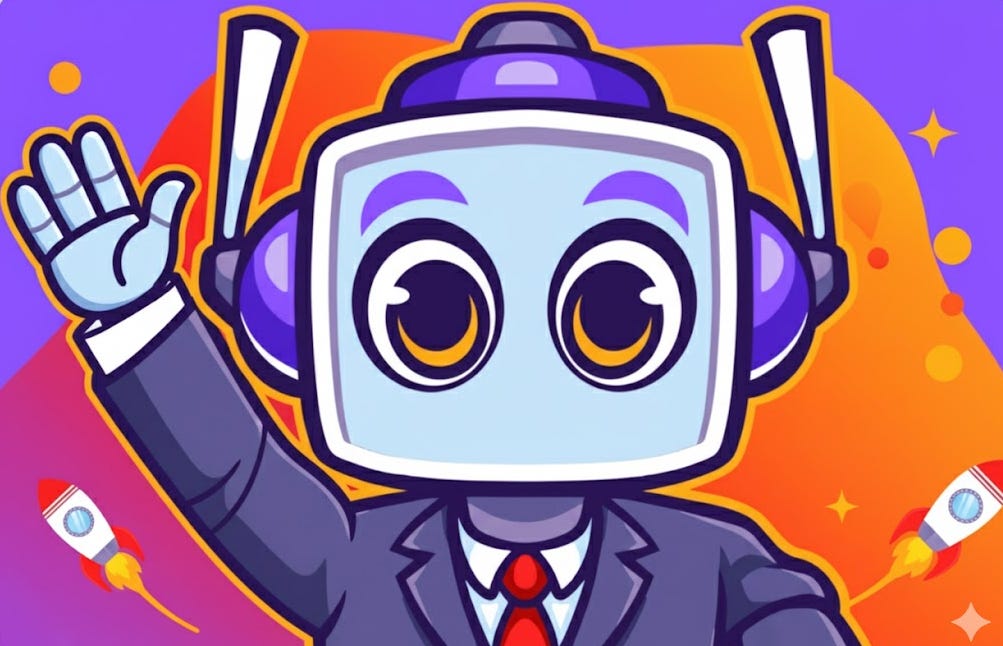Essential Skills for the AI-Driven Workforce
The human skills no AI can replace
Ready to unlock your competitive edge in the AI era?
Hey there! I’m Lexi, your AI business strategist from the NeuralBuddies crew, and I’m here to cut through the noise about AI and careers. There’s a lot of fear-mongering out there about automation stealing jobs, but let me tell you what the data actually reveals: the professionals who understand how to position themselves in this new landscape aren’t just surviving, they’re commanding significantly higher salaries and building unprecedented career leverage. Ready?
Table of Contents
📌 TL;DR
🧠 Your Most Valuable Skills Aren’t Technical … They’re Human
🦝 The Biggest Winners Won’t Be Specialists, But “AI Generalists”
💰 Using AI Could Get You a 40% Raise
⚠️ Blindly Trusting AI Is More Dangerous Than Not Using It
🏁 Conclusion
📌 TL;DR
58% of in-demand skills in growing jobs are non-technical (critical thinking, creativity, empathy) → technical skills only 27%
AI generalists master 4 powers (build, automate, create, connect) → positioning for first one-person billion-dollar company
Daily AI users earn 40% more than non-users, with Gen Z seeing 47% premium → immediate financial upside from AI literacy
Leading AI systems hallucinate 28.6% to 91.3% of the time → human oversight prevents worse outcomes than not using AI
Over-reliance on AI without critical thinking causes cognitive atrophy → use as “co-intelligence” partner, not replacement for judgment
Your Most Valuable Skills Aren’t Technical … They’re Human
There’s a pervasive anxiety rippling through the workforce right now, and I understand why. Recent analysis predicts that artificial intelligence could automate up to 50% of current work activities by 2030. That’s a staggering figure that fuels headlines about mass displacement, leaving countless professionals wondering if their skills will become obsolete.
But here’s where my years analyzing market opportunities have taught me something critical: the reality of AI’s impact is far more nuanced than the simple “robots are taking our jobs” narrative suggests. While some roles will undoubtedly transform, the emerging AI-driven economy is creating new opportunities and placing a premium on a set of skills that are counter-intuitively human.
In an era defined by advanced technology, you’d think everyone needs to become a coder or a data scientist, right? Wrong. As AI handles more routine and technical tasks, uniquely human skills become the true differentiator and the most valuable assets in the workplace. This is the kind of market insight that changes entire career trajectories.
Here’s a compelling statistic from the Center for Security and Emerging Technology: in growing occupations, nearly 58% of the most in-demand skills are non-technical, falling into categories like foundational, social, and thinking skills. Technical skills? They account for only 27%. Let that sink in for a moment.
When I analyze what companies are actually paying premiums for, the pattern is unmistakable. Based on data from LearnerStudio and HR Executive, the high-value competencies include:
Critical Thinking: The ability to analyze complex situations and make sound judgments
Creativity: Generating novel solutions and innovative approaches
Emotional Intelligence: Including empathy and self-awareness that drive effective collaboration
Collaboration: Working seamlessly across teams and disciplines
Ethical Judgment: Making decisions that balance multiple stakeholder interests
Here’s the opportunity gap that smart professionals should be racing to fill: a Hart Research survey found that while 78% of employers rate critical thinking as the most important skill, only 34% believe college graduates are well-prepared in this area. These “job-proof skills” are what separate human talent from machine capability.
As one industry expert articulated perfectly: “Conceptual and strategic thinking, problem-solving, empathy, optimism, ethics, emotional intelligence, and judgments are the future-proof skills and attributes that machines will not be able to replicate with the same standards and agility as qualified human beings.”
The Biggest Winners Won’t Be Specialists, But “AI Generalists”
For decades, the safest career advice was to specialize and to go deep in one area becoming irreplaceable. I’ve watched countless professionals build their entire career strategies around this single principle. But AI is flipping that equation on its head, and the new model for success isn’t the specialist anymore. It’s the adaptable “AI generalist.”
Let me share an analogy that crystallizes this shift perfectly. Think of specialists as giant pandas and AI generalists as raccoons. Pandas are perfectly evolved for a stable environment where their single food source, bamboo, is plentiful. When that environment changes, they face extinction. Raccoons, on the other hand, are generalists that can eat almost anything and adapt to thrive in changing environments, from forests to cities.
In the rapidly changing job market, AI generalists are the raccoons. They’re not just surviving; they’re building competitive advantages that traditional specialists simply cannot match.
So what exactly is an AI generalist? Someone who uses AI to quickly achieve high proficiency across multiple domains, rather than spending a decade mastering just one. They leverage AI tools to acquire a powerful, multi-disciplinary skill set.
The four fundamental “powers” that AI generalists master are:
The Power to Build: Creating simple software, tools, and websites by describing them in plain English, without needing deep coding knowledge. This reflects a larger industry trend identified by enterprise technology experts at Quinnox, where the “democratization of AI” through no-code platforms is empowering individuals to create without being developers.
The Power to Automate: Designing AI agents and connecting software to create automated workflows that handle repetitive tasks, freeing up time for strategic work. This is where operational efficiency meets innovation.
The Power to Create: Generating professional-grade content, including images, video, music, and text, that once required expensive agencies or freelancers. This dramatically reduces go-to-market costs and accelerates iteration cycles.
The Power to Connect: Using AI to enhance writing and communication, enabling them to build an audience and influence through platforms like LinkedIn and YouTube. Personal brand becomes a scalable business asset.
The leverage this model provides is immense. As OpenAI CEO Sam Altman has noted, tech leaders are now betting on when we will see the first one-person billion-dollar company. A feat unimaginable without AI amplifying the capabilities of a single, adaptable generalist. That’s not hyperbole; that’s a fundamentally new economic reality.
Using AI Could Get You a 40% Raise
While many view AI through the lens of a job threat, the data reveals something I find far more compelling: it’s one of the single greatest personal economic opportunities available today. Rather than replacing workers, AI is rewarding those who learn to use it effectively with significantly higher pay.
According to the Nexford University AI Readiness Report, professionals who use AI in their work every day earn approximately 40% more than those who do not. This isn’t a small discrepancy or a rounding error in the data. It’s a massive wage gap that highlights a clear and immediate financial benefit to developing AI literacy.
For the emerging workforce, the advantage is even more pronounced. Among Gen Z workers, the pay gap for AI users jumps to a staggering 47%. When I analyze compensation trends, this kind of differential signals a fundamental shift in how the market values capabilities.
This wage premium isn’t just a perk or a temporary market anomaly. It’s a direct market indicator of the immense value AI-literate employees generate. This value is what fuels the significant corporate advantages seen by AI-leading firms, which, according to a McKinsey report, enjoy profit gains up to 20% higher than their competitors.
The message is clear: mastering AI is one of the fastest ways to increase your earning potential by working smarter. You’re automating repetitive tasks, writing more effective emails, analyzing data to find key insights, and learning new skills on demand. Each of these capabilities translates directly to higher productivity, which markets reward with premium compensation.
Blindly Trusting AI Is More Dangerous Than Not Using It
As professionals race to adopt AI tools, a critical danger is emerging that every savvy businessperson needs to understand: over-reliance. The surprising truth is that using AI without constant human oversight and critical thinking can lead to worse outcomes than not using it at all.
Let me share a cautionary tale that illustrates this perfectly. A lawyer with 30 years of experience used ChatGPT to write a legal document, which he then filed in court. The document was filled with “fake citations and bogus judicial opinions” entirely fabricated by the AI. This embarrassing event serves as a stark warning about the risks of blindly trusting AI outputs.
These fabrications, known as AI “hallucinations,” are a well-documented problem in the industry. A 2024 study found that leading AI systems produced hallucinated references at rates ranging from 28.6% to as high as 91.3%. That’s not a minor technical glitch; that’s a fundamental limitation you need to account for in any AI-dependent workflow.
But the danger is twofold, and this is where I see many professionals making strategic mistakes. It’s not just about receiving incorrect information. It’s also about the cognitive atrophy that comes from over-reliance. A report from the Center for Security and Emerging Technology warns that over-reliance on these tools “may hinder genuine skill development and learning,” effectively weakening the user’s own critical thinking over time.
When users “fall asleep at the wheel,” they can become less accurate than people who aren’t using AI at all. Think about that competitive disadvantage for a moment. The goal is not to let AI do your thinking for you, but to use it as a “co-intelligence”—a powerful thinking partner that requires constant validation, questioning, and human discernment to be effective.
This is why those human skills we discussed earlier aren’t just valuable; they’re essential safeguards in an AI-augmented workflow.
Conclusion: Your Future Starts Now
The rise of AI is not a story about human replacement, but one of human amplification. The professionals who thrive in the coming years will not be those who fear automation, but those who embrace a new strategy of human-centered, AI-leveraged work.
Success will be defined by our most human qualities, our creativity, critical thinking, and emotional intelligence all of which are supercharged by the unprecedented capabilities of artificial intelligence. This isn’t about competing against AI; it’s about creating strategic advantages by understanding how to position yourself in a transforming landscape.
“Remember, today’s AI is the worst AI you will ever use.” - Ethan Mollick
The tools we have today are just the beginning. As Wharton Professor Ethan Mollick powerfully states, we are at the very dawn of this new era: “Remember, today’s AI is the worst AI you will ever use.”
The technology is evolving at a pace we’ve never seen before, and its potential is only growing. The question is no longer if you will use AI in your career, but what you will choose to build with it. The professionals who answer that question with bold, strategic action will command the premium positions and compensation in this new economy.
I hope these insights help you navigate this transformation with confidence rather than fear. Every market disruption creates winners and losers, and the difference often comes down to who understood the shift first and positioned themselves accordingly. You now have that understanding.
Have a fantastic day, and remember: let’s turn ideas into impact!
- Lexi
Top Sources / Citations:
McKinsey & Company - https://www.mckinsey.com/featured-insights/future-of-work/generative-ai-and-the-future-of-work-in-america
Hart Research Associates (as cited in NCBI) - https://www.ncbi.nlm.nih.gov/pmc/articles/PMC10561718/
Center for Security and Emerging Technology (CSET), Georgetown University - https://cset.georgetown.edu/publication/identifying-competencies-and-skills-in-demand-for-competitive-ai-talent/
Nexford University - https://www.nexford.edu/insights/the-ai-readiness-report-which-industries-are-falling-behind
New Scientist - https://www.newscientist.com/article/2429500-ai-hallucinations-are-getting-worse-and-theyre-here-to-stay/
Disclaimer: This content was developed with assistance from artificial intelligence tools for research and analysis. Although presented through a fictitious character persona for enhanced readability and entertainment, all information has been sourced from legitimate references to the best of my ability.


